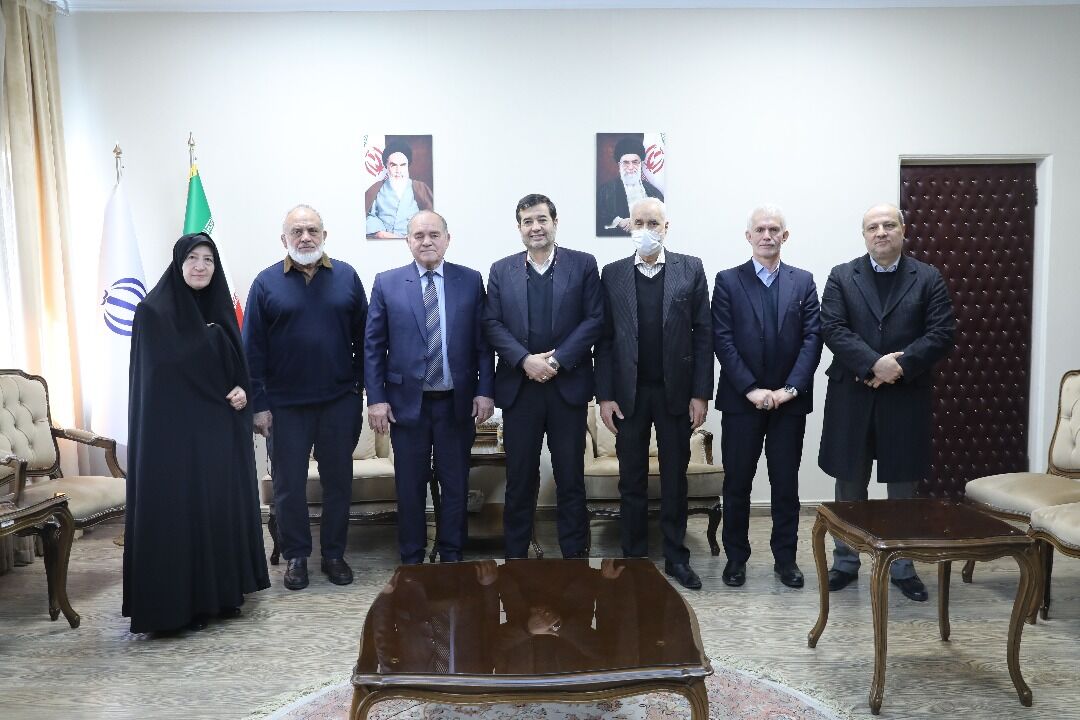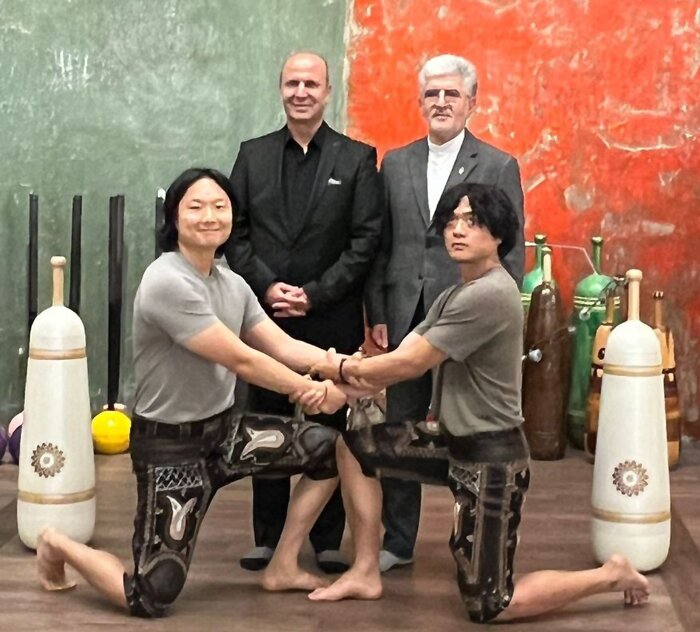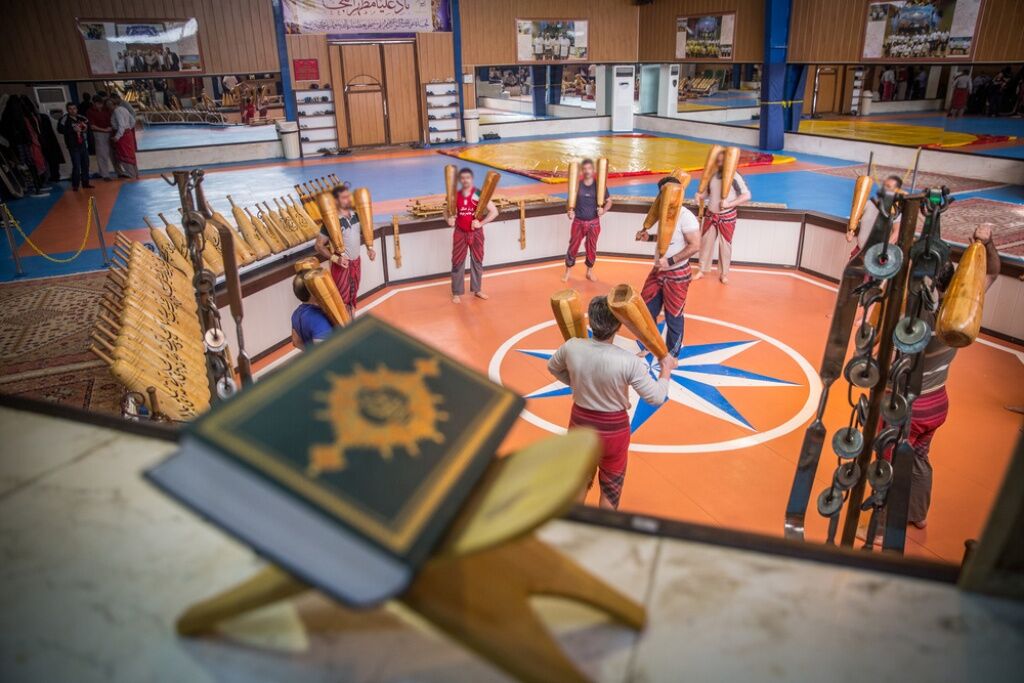Richard Catardo knows exactly what it feels like to perform at the highest level: the versatile and talented Uruguayan is part of an elite group of players to have appeared in FIFA-run World Cups in two different disciplines. In 2021, he proudly defended his country’s flag at the FIFA Beach Soccer World Cup™, ۱۳ years after having represented La Celeste at the FIFA Futsal World Cup™.
Now 36, and after a long and fruitful club career that has seen him excel in his homeland and in Argentina, the gifted pivot has his sights set on achieving a dream.
“I want to play at the Futsal World Cup again,” he told FIFA. “Although I did play at one in 2008, I wasn’t as mature as I am today and I didn’t enjoy it to the fullest. I played in it without realising what I was playing for.”
‘La Mascota’ (The Mascot), the nickname bestowed upon him due to his physical characteristics when he was young and just breaking into the first team, enjoys legendary status in Uruguay and has been included in the squad for the Futsal Copa America, which also serves as the qualifying tournament for the FIFA Futsal World Cup Uzbekistan 2024™.
Clinching one of the four berths for the prestigious event will not be easy: Los Charrúas will have to negotiate a group stage in which they will face superpowers Argentina and Brazil.
How would you assess the tough-looking group you’ve been drawn in?
Richard Catardo: There’s no doubt it’s a tricky group. If we’d been able to choose, it’s not a group we would have hand-picked, obviously. But that’s just the way it is, and we’ll need to handle it. We definitely have the weapons to cause the other teams problems and qualify for the World Cup. The difference is, in a group like this, there is practically no room for error. We’ve been working on that. We’ll have to be at 100 per cent in all four of our matches. We know that opponents like Argentina and Brazil will make you pay if you make a mistake, and we can’t afford any errors if we want to make it to the World Cup.
How are you and your team-mates feeling about the tournament?
We’re really keen to get going. It’s just around the corner now, and that’s when you start to get a bit anxious about the big kick-off. We spent a long time getting ready for it – it’s been one of the best preparation periods Uruguay have had in recent times. We focused hard on the tournament while working away, with the desire and confidence to send Uruguay to the World Cup. It’s been a lengthy process, one which helped us to grow and gave us the peace of mind to concentrate on our work. Before it was shorter, and you had to get the team flowing and make the players gel together in a very short space of time. Here we’ve had a significant amount of time to train, with tournaments in between, which is incredibly important, so that you can gauge how you’re doing. These days, we’ve got a real team, one that performs as a unit and doesn’t depend on any one individual, and that’s a really good thing. And we’ll have to be strong defensively to achieve our objective.
In your opinion, has the gap between Argentina and Brazil and the rest of South America narrowed in recent years?
Yes, I’d say that the gap has definitely narrowed. The South American teams are pretty even now – anybody can beat anybody. Matches come down to tiny details, and if you have a bad day or a bad game, that can cost you qualification.
You have previously emphasised the importance of reducing the gap with stronger sides. Do you think that’s been one of the keys to Uruguay’s success?
The sport in Uruguay is extremely amateur. And we players put an amazing amount of self-pride into it, and that helps us to compete with national teams or players who are professionals, who make a living out of the game. Because ‘professional’ is really just a mindset, not whether you get paid or not. But obviously, given the types of leagues that those kinds of players are playing in, their daily dedication is much greater that what my team-mates can offer. But we make up for that with plenty of fighting spirit and commitment.
In 2022, you reached the final of the Copa Libertadores with Penarol. Do you think that demonstrates how much futsal has improved in Uruguay?
I think it does, yes. Penarol is a clear example of a team that took a gamble, raised the bar, and believed in bringing in foreign players and coaches. But the foundation was always the same: hard work. The core of the team were all players from here, who had been playing in the domestic league for several years. Putting in the work day after day is what pays off, and Penarol realised that. They made an effort to ensure that the level of work was high, and it got results in a short period of time.
How important are achievements like that for the future of Uruguayan futsal?
They’re extremely important for the sport and the players, who operate at a lower level. It encourages them to keep believing in the sport and helps them to realise that if you work hard and are competitive, you can make things happen. We’re used to hearing Uruguayans say that they’re going to play against a superior team from somewhere, and sometimes the game is already lost in advance. Penarol were able to show that if you work hard, have a clear plan, and use the weapons you have intelligently, you can compete against anyone. That’s the idea behind the national team: using the weapons that we already have as a springboard to become truly competitive.
How do you view your own development as a player?
Playing futsal in Argentina helped me a lot, especially in terms of being a professional, changing my mindset, the daily work. And the ‘invisible’ work too: nutrition, additional training outside the club. All those things helped me to develop and grow. I’ve matured so much. The defeats and failures enabled me to grow. I feel I’m at a good time in my life now, due to my maturity. When I was younger, I didn’t have that, and there were lots of situations I didn’t handle all that well during matches. My experiences in Argentinian football and in the Copa Libertadores have really helped me to manage certain moments in games when I was close to losing control.
You took part in the last Beach Soccer World Cup. Do you still play the sport, and if so, what is it like to juggle both futsal and beach soccer?
Yes, I still play. Whenever I’m in Uruguay I try to get back to playing. The sports are pretty similar, tactically speaking. Obviously, the training is different – one is done on the sand and the other on the court. Luckily, Penarol train at night and the beach football team train in the morning. There’s no problem with them clashing. The sand is very useful for sportsmen, and I use it to complement the futsal side of things. I do it because I like it, and as long as I can, I’ll keep doing it. I played at the Beach Soccer World Cup in Russia, I’ve played at the Beach Soccer Copa America. Representing your national team is always a great privilege, a source of pride, and we have to do it with a lot of respect. I had previously never even thought about playing beach soccer, let alone at a World Cup, so when I managed to do so, I was very happy. The experience was tremendous, we had a good World Cup. You appreciate things as time goes by, and in a while, I’ll be able to look back and properly realise what I achieved.
In which sport is an upset more likely to happen: futsal or beach soccer?
I’d lean more towards beach soccer. It’s a sport that depends on a lot of things. There are a lot more goals and a lot more finishing. Futsal is a bit more tactical. In beach soccer, if you can take a tight match to the last minute, maybe you can win it via a foul. Futsal tends to respect logic a bit more, although there are still surprises that occur in both sports.
- نویسنده : محمد مهدی اسماعیلی رها






























Saturday, 13 September , 2025